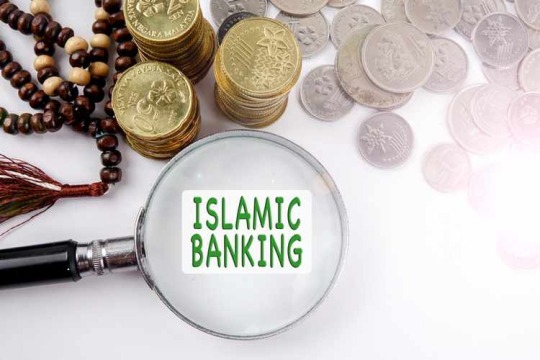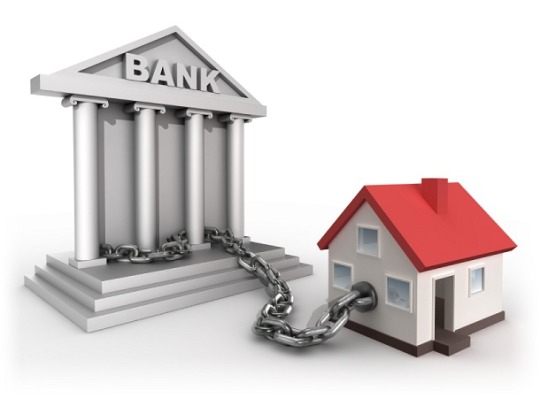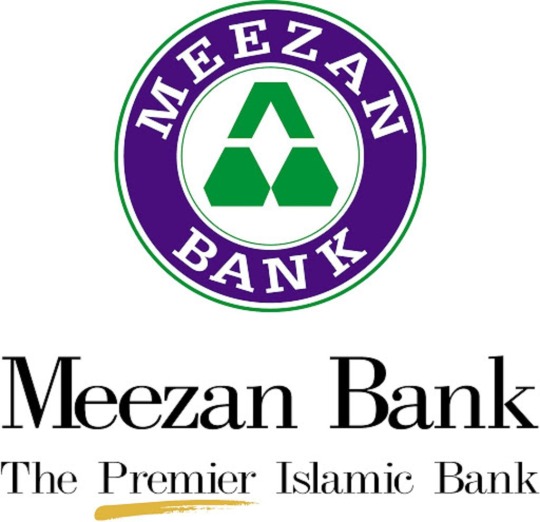#Musharakah
Text
Profit and Loss Sharing Two Tier Mudarabah
Paper Title: Profit and Loss Sharing Partnership: The Case of the Two Tier Mudarabah in Islamic Banking
Author: Amine Ben Amar and AbdelKader O. El Alaoui
Publisher: Emerald International Journal of Islamic and Middle Eastern Finance and Management, Vol. 16 No. 1, 81-102.
This paper mathematically analyzes the two-tier Mudarabah model in an exclusive Islamic financial environment and…

View On WordPress
#AbdelKader O. El Alaoui#Adverse Selection#Agency Conflict#Amine Ben Amar#Debt Based Modes of Financing#Distributive Justice#Equity Based Modes of Financing#Ideal Modes of Financing#Information Asymmetry#Islamic Banking#Islamic Finance#Moral Hazard#Mudarabah#Musharakah#Profit and Loss Sharing#Risk Sharing#Risk Sharing vs Risk Shifting#Shariah Based Modes#Two Tier Mudarabah
0 notes
Note
Good morning if I have a current mortgage and change it over to halal option with the remaining amount I have outstanding is that an option I can do if you can give me some more information that would be helpful regards Fatima
Yes - you can refinance your conventional mortgage to a shariah-compliant alternative.
The way it would work is this:
1. You currently your own house with the current mortgage provider having a legal charge on it. You would sell a share of this house to the shariah-compliant provider/bank.
2. What they pay you for their share, will basically go to pay off the current mortgage provider in order for that charge to be removed and property transferred over to the bank with a partnership agreement with provisions in the agreement allowing you to buy their share back at the same price.
3. You agree to rent the banks share back under the lease agreement. You will only pay rent on the banks share.
4. You will also make payments towards acquiring more of the property which means the proportion of rent you pay also reduces each month.
5. You will stop paying rent when you have completed the fill acquisition from the bank.
0 notes
Text
Shaykh al-Islam 'Abd al-'Aziz Ibn Baz (d.1420H) - رحمه الله - said,
"The best covering for the woman, after veiling her face and covering her body with clothing, is her home."
Khatar Musharakah al-Mar'ah lir-Rijal (p. 9)
https://twitter.com/SunnahPubs/status/1610992350615961602?t=hrr5cW54bQQubEJ4nDQukQ&s=19

2 notes
·
View notes
Text
Islamic Influence.
Islamic finance is based on Islamic principles and jurisprudence. The payment and receipt of interest (riba) is prohibited under Islamic principles. Contracts that involve speculation (maysir) and uncertainty (gharar) are considered void in Islamic finance. Financing instruments in Islamic finance consist of equity-like and debt-like instruments.
Fixed claim instruments include murabaha, ijarah, salam, and istisna. Sukuk is an asset-backed trust certificate (bond) representing ownership of an asset or its usufruct (earnings) based on the principle of sharia. Equity instruments include mudarabah and musharakah. In mudarabah one partner provides the capital investment (rabb ul maal) to another partner (mudarib) who is responsible for operations and management of the business. Musharakah is a profit-and-loss sharing partnership contract.
Islamic financial institutions face various risks such as credit risk, benchmark risk, liquidity risk, operational risk, legal risk, and fiduciary risk. Takaful is commonly referred to as Islamic insurance. The two basic models of takaful insurance are the Al mudharabah and al wakala model.
#Islamic finance#Islamic financial institutions#credit risk#benchmark risk#liquidity risk#operational risk#legal risk#and fiduciary risk.#Financing instruments#capital investment
0 notes
Text
What is the difference between normal banks and Islamic banks?
Traditional banks and Islamic banks differ fundamentally in their operating principles, which are shaped by their respective financial systems and religious beliefs. Here's a concise comparison of the two:
Interest vs. Profit-and-Loss Sharing: One of the most significant distinctions is the treatment of money. Traditional banks operate on an interest-based system, where they lend money and charge interest on loans. Islamic banks, however, adhere to Shariah law, which prohibits the payment or acceptance of interest. Instead, they employ a profit-and-loss sharing system. They enter into partnerships with clients, sharing both profits and losses.
Asset-Backed Financing: Islamic banks are required to ensure that their investments are backed by tangible assets or services. This means they are more inclined to engage in asset-backed financing, which reduces the risk of speculative activities and promotes economic stability.
Risk-Sharing: Islamic banks are more focused on risk-sharing. They actively engage in Mudarabah (profit-sharing) and Musharakah (partnership) contracts, where both the bank and the client share the risks and rewards associated with a project or investment. In contrast, traditional banks predominantly transfer the risk to the borrower.
Prohibited Investments: Islamic banks are not allowed to invest in businesses related to alcohol, pork, gambling, or other activities deemed haram (forbidden) in Islam. Traditional banks do not have such restrictions.
Social Responsibility: Islamic banks often emphasize social responsibility and ethical investment, as their operations are guided by the principles of Islamic finance.
Regulation: In many countries, Islamic banks operate under specific regulations that cater to their unique financial framework.
In summary, while traditional banks rely on interest-based lending, Islamic banks operate on a profit-and-loss sharing model, with a strong emphasis on ethical and asset-backed financing in compliance with Shariah law. These differences make each type of bank suited to specific customer preferences and financial needs.
#accounting#share market#economy#ecommerce#bussiness#us#world markets#globalmarketplace#branding#commercial
0 notes
Text
Unlocking the Dream: A Comprehensive Guide to Dubai Mortgage Services
Dubai, often referred to as the "City of Dreams," has transformed itself into a global metropolis known for its towering skyscrapers, luxurious lifestyle, and thriving business opportunities. For many, owning a piece of this glamorous city is a lifelong dream. However, purchasing property in Dubai can be a significant financial endeavor. This is where Dubai mortgage services come into play, offering a pathway to make your real estate dreams a reality.
In this comprehensive guide, we will delve deep into the world of Dubai mortgage services, exploring the ins and outs of the process, the various types of mortgages available, eligibility criteria, and the benefits of securing a mortgage in this bustling emirate. So, let's embark on a journey to discover how Dubai's mortgage services can turn your dream of property ownership into a concrete reality.

The Dubai Real Estate Market
Before diving into mortgage services, it's essential to understand the Dubai real estate market's dynamics. Dubai has witnessed remarkable growth over the past few decades, attracting investors and expatriates from all corners of the world. The emirate's impressive infrastructure, favorable tax environment, and thriving business landscape have played a pivotal role in driving real estate demand.
Dubai offers a diverse range of properties, from opulent villas on the Palm Jumeirah to chic apartments in the bustling Downtown district. The real estate market caters to various preferences and budgets, making it a prime destination for both investors and homebuyers.
Types of Dubai Mortgages
Dubai's mortgage market offers a variety of mortgage products to cater to the diverse needs of its residents and investors. Some of the most common types of Dubai mortgages include:
a) Fixed-Rate Mortgages: Fixed-rate mortgages offer a stable interest rate for a predetermined period, typically ranging from 1 to 10 years. Borrowers benefit from consistent monthly payments, making budgeting more manageable and predictable.
b) Variable-Rate Mortgages: Also known as adjustable-rate mortgages (ARMs), these mortgages have interest rates that can fluctuate based on market conditions. While initial rates may be lower, they can increase over time, potentially leading to higher monthly payments.
c) Islamic Mortgages: Compliant with Shariah law, Islamic mortgages do not involve interest (Riba). Instead, they utilize alternative structures such as Murabaha, Ijara, or Musharakah to facilitate home financing. These mortgages are accessible to both Muslims and non-Muslims.
d) Off-Plan Mortgages: Off-plan properties are those that are still under construction. Off-plan mortgages allow buyers to secure financing for properties that may not be completed for several months or even years. They often come with specific terms and conditions tailored to the off-plan property market.
e) Buy-to-Let Mortgages: Designed for investors, buy-to-let mortgages enable individuals to purchase properties with the intention of renting them out. These mortgages have unique terms and may require higher down payments compared to traditional home mortgages.
Eligibility Criteria
To secure a mortgage in Dubai, you must meet specific eligibility criteria. These criteria can vary between banks and lending institutions but often include:
a) Age: Most banks require applicants to be at least 21 years old to apply for a mortgage. The maximum age limit for mortgage applicants is typically set at 65 to 70 years at the time of loan maturity.
b) Income: Lenders will assess your income to determine your eligibility for a mortgage. You will need to provide proof of stable income, such as payslips, bank statements, and employment contracts.
c) Loan-to-Value Ratio (LTV): The LTV ratio is the percentage of the property's value that the lender is willing to finance. In Dubai, LTV ratios often range from 70% to 85%, depending on various factors such as your income, nationality, and property type.
d) Debt-to-Income Ratio (DTI): Your DTI ratio compares your monthly debt obligations to your income. Lenders typically prefer a DTI ratio of 40% or lower.
e) Credit Score: A good credit history is crucial when applying for a mortgage. Banks will assess your credit score to evaluate your creditworthiness.
f) Down Payment: Dubai's Central Bank has set a minimum down payment requirement of 20% for expatriates and 25% for UAE nationals when purchasing property.
The Mortgage Application Process
The process of obtaining a mortgage in Dubai involves several key steps:
a) Pre-Approval: Before you begin house hunting, it's advisable to seek pre-approval from a bank. This involves submitting your financial documents and undergoing a credit check to determine the loan amount you are eligible for.
b) Property Search: Once pre-approved, you can start your property search. It's essential to have a clear idea of your budget to narrow down your options effectively.
c) Property Valuation: After identifying a property, the bank will conduct a valuation to assess its market value. This is crucial in determining the final loan amount.
d) Mortgage Application: With the property chosen and valued, you can formally apply for the mortgage. Prepare all required documents, including your identification, proof of income, bank statements, and property details.
e) Mortgage Approval: The bank will review your application and conduct a credit assessment. If approved, you will receive a formal mortgage offer detailing the terms and conditions.
f) Legal Process: You will need to engage a lawyer to handle the legal aspects of the property transaction, including the sale and purchase agreement.
g) Property Registration: The property will be registered in your name, and the mortgage will be officially recorded.
h) Disbursement: The bank will disburse the loan amount directly to the seller or developer, and you will take possession of the property.
Benefits of Dubai Mortgage Services
Dubai mortgage services offer several advantages to property buyers and investors:
a) Homeownership: The most significant benefit is the opportunity to own a property in Dubai, which can serve as a stable investment and a place to call home.
b) Flexible Terms: Dubai mortgage providers offer a range of mortgage products with flexible terms, allowing you to choose the one that best suits your financial situation.
c) Tax Benefits: Mortgage interest paid in Dubai is typically tax-deductible, providing potential tax savings for homeowners.
d) Capital Appreciation: Dubai's real estate market has a history of capital appreciation, making property ownership a potentially lucrative investment.
e) Diversification: Owning property in Dubai can be a valuable addition to your investment portfolio, diversifying your assets.
f) Rental Income: If you opt for an investment property, you can generate rental income, potentially covering your mortgage payments and providing additional income.
Challenges and Considerations
While Dubai mortgage services offer numerous benefits, there are also some challenges and considerations to keep in mind:
a) Market Volatility: Dubai's real estate market can be volatile, and property values may fluctuate. It's essential to conduct thorough research and consider your long-term investment goals.
b) Currency Risk: If your income is in a different currency than the mortgage, currency exchange fluctuations can impact your monthly payments.
c) Fees and Charges: Be aware of the various fees associated with mortgage services, including arrangement fees, valuation fees, and early repayment charges.
d) Legal Aspects: The legal process of buying property in Dubai can be complex. Engaging a reputable lawyer is crucial to navigate the legal requirements.
e) Default Risks: Failing to meet mortgage payments can lead to foreclosure, impacting your credit history and potentially resulting in the loss of your property.
Conclusion
Dubai mortgage services offer a gateway to realizing your dream of property ownership in one of the world's most vibrant and cosmopolitan cities. With various mortgage types, flexible terms, and eligibility criteria, Dubai's real estate market provides opportunities for both residents and investors.
However, it's essential to approach the process with careful consideration, conduct thorough research, and seek expert advice when necessary. By understanding the intricacies of Dubai's mortgage services and the dynamic real estate market, you can embark on your journey toward homeownership in this dazzling emirate.
0 notes
Text
Stock trading Islamic accounts
Stock trading Islamic accounts are specifically designed to cater to individuals who follow Islamic principles and wish to engage in the stock market while remaining compliant with Shariah law. These accounts offer a unique set of features and guidelines that align with the ethical and religious values of Islamic finance.
One of the key principles in Islamic finance is the prohibition of Riba, or usury. This means that Islamic accounts do not allow investors to earn or pay interest on their investments. Instead, they focus on finding alternative methods of generating returns that are in accordance with Shariah law.
In stock trading Islamic accounts, investors typically engage in activities that are considered halal (permissible) and avoid those that are haram (prohibited). For example, investments in companies involved in industries such as alcohol, gambling, pork, and interest-based financial services are generally avoided. Instead, investments are made in sectors such as technology, healthcare, consumer goods, and renewable energy, which are considered ethical and compliant.
To ensure compliance with Islamic principles, Islamic Stock trading accounts also adhere to specific financial mechanisms. One such mechanism is the concept of Mudarabah, which involves profit and loss sharing between the investor and the fund manager. This ensures that both parties are invested in the success of the investment and encourages a fair distribution of profits.
Similarly, the concept of Musharakah is often employed, which involves a joint partnership between the investor and the fund manager. Both parties provide capital for the investment, share in the profits, and also bear any losses proportionally. This promotes a sense of shared responsibility and fairness in the investment process.
Furthermore, Islamic accounts may also adopt the concept of Halal screening, which involves a thorough analysis of the financial statements and business activities of companies before investing in their stocks. This screening process ensures that the stocks selected are in accordance with Islamic principles and free from any haram activities.
In recent years, the demand for stock trading Islamic accounts has grown significantly, as more Muslims seek ethical investment opportunities that align with their religious beliefs. Financial institutions and brokerage firms have responded by offering specialized Islamic accounts that cater to these needs. This allows individuals to participate in the stock market with peace of mind, knowing that their investments are in compliance with Shariah law.
In conclusion, stock trading Islamic accounts provide a tailored solution for Muslims who wish to engage in the stock market while adhering to Islamic principles. These accounts offer unique features, such as avoiding interest-based transactions, focusing on halal investments, and utilizing financial mechanisms that align with Shariah law. By offering ethical investment opportunities, stock trading Islamic accounts empower individuals to grow their wealth while staying true to their religious values.
0 notes
Text
Secrecy of the Business
Another criticism against musharakah is that, by making the financier a partner in the business of the client, it may disclose the secrets of the business to the financier, and through him to other traders.
However, the solution to this problem is very easy. The client, while entering into the musharakah, may put a condition that the financier will not interfere with the management affairs, and he will not disclose any information about the business to any person without prior permission of the client. Such agreements of maintaining secrecy are always honored by the prestigious institutions, especially by the banks and financial institutions whose entire business is based on confidentiality.
2 notes
·
View notes
Link
Learn Musharakah in Islamic Finance/Banking.
1 note
·
View note
Text
How Are Halal Loans Different From Conventional Loans?

Islamic banking and finance (IBF) is based on good faith investment and are guided by Islamic law. You can get sharia-compliant loans or halal loans from the Halal Mortgage around. You do not necessarily have to be a Muslim to get the benefit of a halal loan, as these finance and banking products and services are for everyone.
Halal loans are different from conventional loans in a variety of aspects.
Guided by Islamic Principles
There are four main Islamic finance principles that are taken into consideration when providing loans.
Riba As per the sharia law, usury or interest is strictly prohibited. None of the Islamic loans is replayed with interest; in fact, there is no presence of interest element in Islamic banking and finance.
Musharakah As per Musharakah, you can opt for where is you can make a decision with the bank to own separate shares in the property. You can gradually buy the share owned by the bank by buying more and more shares of the property from the ones that are owned by the bank.
Ijara The word meaning of it is a lease in Arabic. The bank would buy the property that you are want to purchase and lease it to you at a fixed monthly cost. The ownership of the property stays with the back until the loan is paid outright.
Murabaha the back would buy the property that you are looking forward to buying and sell it to you at a higher rate. The higher price is to be paid in fixed monthly installments to the bank.

Lower Cost
These financial tools are provided with the aim to provide access to finance for all classes of people, whether muslin or non-muslin. The no-interest policy saves the considerable cost of people. Yes, these are available lower cost than most of the conventional loan options. In fact, these loans are available at competitive rates and have been shown to be saving a considerable amount of money in the long run.
Less Complex
Unlike the process of conventional loans, halal loans are lesser complicated. From the application process to each monthly payment, these loans are easy to understand for each person with no foreknowledge. Further, the banking sites make it simpler by using the latest technology and the internet by providing the convenience to complete the processes online. This is the best alternative if a person is looking for a loan option with lesser complexities.
Increased Halal Loan Providers
Back when there were a few Islamic banks, they could not cope with the demand that surged as many Muslims and non-Muslims wanted to benefit from Islamic banking and financial products. Today, it is not the case as the number of Islamic banks has increased, and so is the reachability.
Further, the product and services are optimised guided by Islamic principles to provide added benefit without breaching the sharia law.
If you have been keeping off from getting the halal loans thinking that it is for Muslims only, then you are shutting yourself from many benefits.
Source:
In What Facet Halal Loans Are Different From Conventional Loans?
0 notes
Text
Sukuk in Islamic Capital Markets
Mufti Saad Ali Chippa
Definition of Sukuk
Sukuk is the plural of “Sak”, which means: “document or certificate”. During the period of Marwan Bin Huqam, the certificate issued to people to get rations from the Treasury were called “Sukuk”. But, the modern meaning of Sukuk is different. In contemporary Islamic finance terms, Sukuk means:
“Securities of equal denomination representing individual…

View On WordPress
#Ijarah Sukuk#Islamic Capital Markets#Istisna Sukuk#Mudarabah Sukuk#Musharakah Sukuk#Saad Ali Chippa#Sukuk#Wakalah Sukuk
0 notes
Note
I am in need of a bridging loan to purchase a property whilst I wait for my house to sell will it mean that I will have to pay stamp duty as I will have 2 properties albeit very temporarily also if I am successful with the bridging loan application how soon can I have the money in the bank?
We don't get involved in any "loans" or "lending". To keep it shariah-compliant, we rely on partnerships with a lease (musharakah with Ijara) or trade agreements (murabaha based). To answer your question, yes, we can assist with short term bridging facilities and it can be arranged within 4 weeks; but we would have to understand your situation to comment further. Please call is or book an appointment to discuss further.
SDLT - additional rates would apply if you own more than one on completion but if your exisiting property sells within 3 years, you can claim the additional rate back. We are not tax advisors so you would need to discuss this with a qualified tax advisor.
0 notes
Text
Musharakah
¿Qué es Musharakah?
Musharakah es una empresa conjunta o estructura de sociedad en las finanzas islámicas en la que los socios comparten las ganancias y pérdidas de una empresa. Dado que la ley islámica (Sharia) no permite que se obtengan ganancias de los intereses de los préstamos, la musharakah permite que un financiador de proyectos o una empresa logre un rendimiento en forma de una parte de…

View On WordPress
0 notes
Text
Gulf African Bank in Shariah financing partnership deal with Toyota Kenya of up to 95%
Gulf African Bank in Shariah financing partnership deal with Toyota Kenya of up to 95%
Premier Shariah compliant bank, Gulf African Bank and Toyota Kenya have entered into a strategic financing partnership that will enable the bank’s Corporate and SME customers purchase Hino trucks and buses, and Hilux single and double cab pick-ups through diminishing Musharakah-based vehicle financing.
Under the Shariah financing model, the bank and the customer both contribute to the purchase…

View On WordPress
0 notes
Text
Meezan Bank Jobs 2021 Efficient Assistant Relationship Manager Faislabad

Job Description:
Meezan Bank Jobs 2021 are available in Supply Chain Finance Unit - (Corporate & Institutional Banking Group), Pakistan’s leading Islamic Commercial Bank, operating with a network of more than 800 branches in over 240 cities across the country, is seeking applications from individuals meeting the following criteria:
Job Responsibilities:
- Preparation of Credit Proposals (annual, interim and for new accounts) and other necessary approvals
- nitiation & completion of customer's daily financing & trade transactions and following up with relevant
departments
- Assist the Relationship Manager in ensuring compliance to Prudential Regulations
- To market new SME/Commercial customers as per the guidelines of Supply Chain Product program
Job Requirements:
- Report writing, Marketing, Communication skills & Financial Analysis
Job Benefits:
- Permanent position
- Marketing competitive salary
- On-the-job and class room training
- Annual increment & performance-based bonus
- Car Ijarah (Auto Finance) at zero percent
- Provident fund
- Gratuity fund
- Diminishing Musharakah (House Finance)
- Medical and Life Takaful coverage
- Tele-medicine facility (OPD) & much more
Job Qualification:
- Bachelor's or Master's in Banking and Finance from a reputable university
Job Experience:
- Fresh
-
1-2 years
Job Details:
Company: Meezan Bank
Job Type: Full Time
Job Location: Faisalabad, Punjab
Application Deadline: N/A
Apply Now
jobbees.pk
Read the full article
0 notes
Text
Sforzando 稅務指南 2021|全方位為您解構香港公司利得稅 Part 1
利得稅稅率簡介
對於2018-2019納稅年度而言,香港公司利得稅(Profits Tax)稅率分為兩級:公司對應納稅利潤(最高200萬港元)支付8.25%,對高於該數字的利潤支付16.5%。在這利得稅稅制下,公司最高可獲豁免港幣30,000元的利得稅的75%。
同樣,沒有註冊成立的公司則要為首200萬港元支付7.5%,然後向高於該數額的應稅利潤支付15%。所有納稅人,無論是已註冊成立的公司還是未註冊成立的公司,無論其居留身份如何,均應繳納相同的營業稅率。
大幅低於標準稅率的特殊優惠利得稅稅率適用於以下業務或收入來源:
· 由在香港發行的,最初到期不超過7年的債務工具產生的交易利潤和利息收入,應按優惠稅率徵稅,即正常利潤稅率的50%,而對於那些到期日為7年的交易年及以上有資格獲得100%的優惠。
· 離岸風險再保險以優惠稅率徵稅,即正常利潤稅率的50%。
· 人壽保險業務按香港產生的保費價值的5%評估。
· 一個實體,其業務要授予使用商標、版權、專利或專有技術的權利,並應支付所收取款項的16.5%的固定利潤稅(稅額為16.5%(對於非法人企業為4.95%或4.5%),並支付所有相關費用)不可抵稅。如果付款的接收者是相關的離岸許可公司,則香港公司必須扣留並移交所支付費用的4.95%。
· 除非船舶在香港水域或其附近經營,否則船公司的國際業務收入免稅。在這種情況下,只有在香港賺取的那部分收入應繳納16.5%的地方稅。符合與美國雙重徵稅協議條件(Double Taxation Relief)的運輸利潤在香港免征利得稅。
· 不論是否從香港管理和控制公司,應課稅利潤都是在香港產生的收入(從本地旅客和貨運量的上升)佔全球收入的比例。根據許多國際飛機雙重徵稅協議,政府已同意將國外產生的收入計入香港,而該收入在該協議下可在國外免稅。同樣,符合雙重徵稅協議條件的利潤在當地免征利得稅。稅率為應稅利潤的16.5%。
· 代非居民從香港代銷的貨物的銷售應繳納營業額的1%的稅,且不作任何扣減,除非該非居民能出示表明其繳納的利得稅比代銷的少在這種情況下,將採用正常稅率。代銷貨物的銷售被視為等同於建立常設機構。
· 經營其電影,錄像帶或錄音製品以出租用於任何電影院或電視節目的實體,應繳納的利潤稅為稅額的16%的30%(16.5%,對於非法人企業為4.95%,對於非法人組織為4.5%)。所有相關費用不可減稅。
香港近年發展稅制發展
2012年3月,財經事務及庫務局(Financial Services and the Treasury Bureau)就《稅務條例》(Inland Revenue Ordinance)和《印花稅條例》(Stamp Duty Ordinance)的擬議修正案展開了為期兩個月的磋商,以促進香港伊斯蘭債券(sukuk)市場的發展。財經事務及庫務局局長陳家強說,有關修訂的目的是在利得稅、物業稅和印花稅負債方面,與傳統的回教債券相比,為普通回教債券提供公平的競爭環境。
政府提議「與英國等其他主要金融市場一樣,採取一種規定性和宗教中立的方法,因為規定性立法規定若不特別提及伊斯蘭教法原則,香港將為實施中的市場參與者提供更大的確定性」。建議這將覆蓋全球市場上最常見的回教債券類型,包括ijarah,musharakah,mudrabah和murabahah,並採用三部分結構,包括發起人,債券發行人和債券持有人,作為擬議立法修正案框架的基礎。具體而言,將引入一個新術語,稱為替代債券計劃,其中包含兩個安排-債券安排和投資安排。前者是指債券發行人與債券持有人之間的安排,而後者是指債券發行人與發起人之間的安排。根據上述每個安排,都需要滿足一系列基本特徵和資格條件,以使有關各方享受適用於該安排的特殊稅收待遇和印花稅待遇/救濟。
在2012年2月宣布的2012/13年度預算中,時任財政司司長曾蔭權提議將2011-12課稅年度的利得稅,薪俸稅和個人入息課稅的最終稅減幅為75%,每宗個案的最高賠償額為港幣12,000元。
為了幫助降低運營成本,增強競爭力和保留工作,財政司司長還建議免徵2012-13年度的商業登記費,並取消對本地公司徵收的資本稅,以鼓勵投資者在香港設立公司。在此之前,由於2010/2011年預算(從2010年8月1日至2011年7月31日)免除了1年商業登記證和1年分支機構登記證的費用。然而,企業仍需支付破產欠薪保障基金徵費。
在2010/2011年預算中,稅務局還澄清了部門解釋和實施說明第43號中「中央管理和控制」的含義,以解決業界對離岸管理委員會董事的居留要求的擔憂資金申請免征利得稅。
為鼓勵工商界購買更多電動汽車,混合動力汽車和其他環保型商用車輛,財政司司長還在2010/11年度預算中決定將環保型汽車資本支出的稅收減免從72%加速至100資本支出的百分比。稅務(修訂)(第3號)條例已在2010年6月18日刊登憲報。財政司司長在2010/11年度財政預算案中,建議將對債務工具產生的利息收入的利得稅寬減範圍擴大至涵蓋到期的債務工具期限少於三年。
另一項2010/11年預算措施擴大了購買專利權和工業知識的稅收可抵扣資本支出的現行製度,以涵蓋註冊商標,版權和註冊外觀設計,以促進企業更廣泛地應用知識產權和發展創意產業。
關於知識產權,根據香港現行的稅收安排,企業用於購買專利權和工業專有技術的資本支出可從利得稅中扣除。於2011年3月9日提交立法會的一項法案旨在修訂《稅務條例》,以針對版權產生的資本支出提供這樣的稅收減免(從購買之年起,連續五年連續直線擴展),註冊外觀設計和註冊商標。它還將取消目前適用於購買專利權和工業知識所產生的資本支出的稅收減免的在香港使用條件。這些增強措施也適用於建議的版權,註冊外觀設計和註冊商標的稅收減免。
詳述香港利得稅
利得稅是根據《稅務條例》向公司實體、合夥企業、信託和獨資企業的「應評利潤」徵收的,利得稅亦是根據「屬地原則」徵收的,也就是說,決定貿易收入是否需要繳納香港利得稅的是收入的來源,而不是實體的居民或非居民身份。
屬地原則是指只有符合以下三個先決條件的收入才需要在香港繳納利得稅:
該實體必須在香港進行貿易
收入必須來自這種貿易
收入必須在香港產生或來自香港
實體的居民或非居民身份與該收入在外國司法管轄區是否免稅的事實無關。特別行政區有預先的稅務裁決,並特別贊成和建議就利得稅而言,交易收入是否被視為在岸和應稅或離岸和免稅的問題。
就利得稅而言,「收入來源」一直被定義為實質上產生收入的業務的地理位置,但稅務局的《實務說明第21號》,增加了更精確的標準。
如果公司在香港設立辦事處,但該辦事處並不是在香港境內產生利潤,則該辦事處本身並不會導致公司需要繳納利得稅。
談判和執行合同的地點。一個關鍵的標準是合同談判和簽署的地點。就利得稅而言,如果賣方在香港以傳真或電話方式談判的銷售合同,而談判不需要在香港以外的地方進行,則有關收入被視為香港來源收入。同樣地,如果合約是在香港以外的㆞方議定和簽訂,而所售貨品並非來自香港境內,則就利得稅而言, 任何收入均不被視為香港來源收入。這通常是通過利用一家離岸公司來實現的,該公司在香港重新註冊為外國公司,但其董事仍然是非居民,並在離岸司法管轄區談判和執行合同。
利得稅重要概念:徵收及豁免利得稅的常見情況
預訂中心:如果香港實體只是一個預訂中心,即它並不談判或起草銷售協議(在國外進行),而只是根據指示開具發票、經營銀行賬戶和保存交易的會計記錄,那麼就利得稅而言,這種交易的收入不被視為香港來源收入。
股票和證券:在香港的證券交易所買賣股票和證券所獲得的收益,在利得稅上被視為香港收入(假設該實體需要就此類活動繳納利得稅)。
跨境陸路運輸:如果乘客或貨物通常是在香港提貨,則跨境陸路運輸的收入被視為香港來源收入。
貸款:就利得稅而言,在香港司法管轄區內提供給借款人的貸款利息被視為香港來源收入,在香港貸款人手中應予徵稅,而在外國司法管轄區提供給借款人的貸款利息則不被視為香港來源收入,因此不應徵稅。
更多關於公司利得稅的資訊,請查閱《Sforzando 稅務指南 2021|全方位為您解構香港公司利得稅 Part 2》。
0 notes